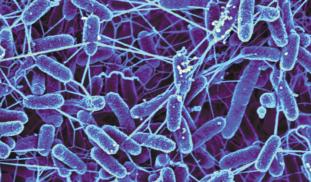Please wait...
About This Project
We are engineering two strains of E. coli: one to uptake phosphorus so as to prevent toxic algal growth in lakes and streams and another to express electrically conductive projections, known as nanowires, in order to generate energy from organic waste. By expressing these genes in E. coli - a model organism - we hope to provide a platform for further study in agriculture, the environment, and alternative energy.

Browse Other Projects on Experiment
Related Projects
Highly-sensitive, real-time enzyme methane oxidation rate measurements using an electrochemical assay
A low-cost, rapid, and highly sensitive assay is needed to measure methane gas oxidation rates by methane...
Engineering of a suction cup stethoscope for non-invasive monitoring of physiological sounds in baleen whales
Baleen whales are large-bodied predators that, despite their critical role in marine ecosystems, our understanding...
Building a better fish: Engineering fish for smarter aquaculture
What if we built a better fish instead of depleting wild fisheries? Natural stocks can’t keep up with demand...


